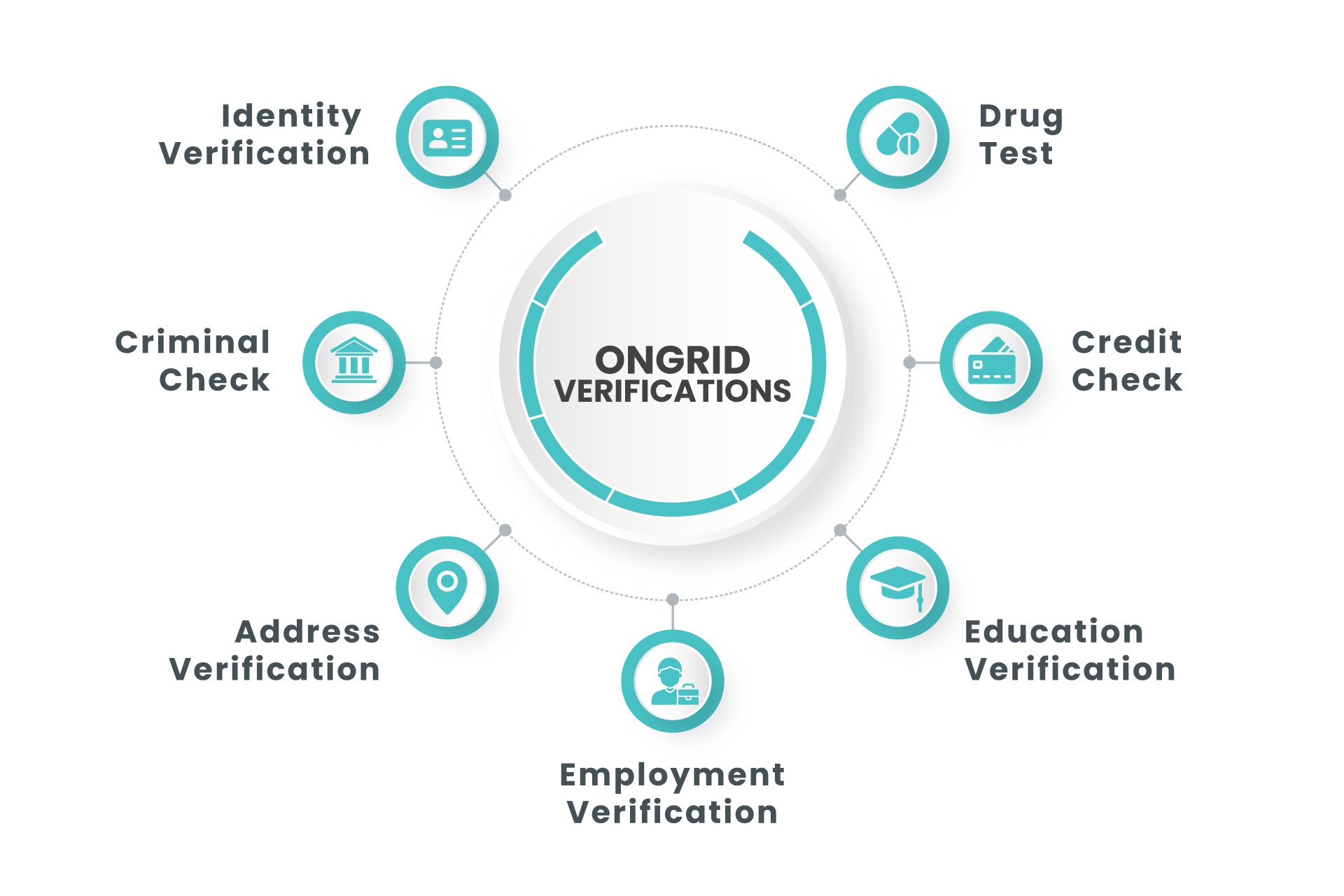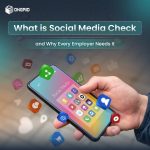Table of Contents
ToggleIn an era where trust and dependability hold the utmost importance, background verification emerges as an indispensable practice. However, in the contemporary hiring landscape background verification has been transformed into a necessity. Why? The reasons are diverse and are highlighted for you in the blog.
This article offers an extensive guide on the background verification process, its importance and uncovering the skepticism about it. Let’s protect the organization’s reputation by selecting the right partner for your background verification needs.
What is background Verification?
Background verification plays a vital role in the hiring process. It helps in verifying the information supplied to a potential employer by a job applicant in his or her resume application or interview. The background check process encompasses checking criminal records, educational qualifications, employment history and more. This scrutiny aims to unveil a person’s character, integrity and reliability.
Importance of background verification
The increasing prevalence of remote work and hybrid models, driven by workforce trends and digital transformation, have elevated the importance of background verification of employees. This emphasizes the need for employers to conduct background checks on their employees.
The resume fraud has prompted a growing requirement for robust BGV procedures during the hiring process. The increasing availability of forged educational certificates and fake references has raised significant concerns among employers.
These increased levels of concern are entirely justified in light of the data from the Association of Certified Fraud Examiners’ Report to the Nations 2022, 21% of the organizations that fell victim ignored onboard candidate red flags during the hiring process.
These statistics emphasize the crucial necessity for organizations to integrate thorough background verification into their recruitment approaches. By doing so, they would not only reduce the potential risks linked to resume fraud but also guarantee that they draw in and onboard candidates who possess the necessary skills and authentic qualifications.
What are the checks included in the background verification process?
The following are the checks to be conducted for the BGV by the employer.

Identity Verification: Identity Verification is the initial process in background verification. This verification confirms that the candidate for the job is actually who they claim to be. It helps employers to check where the candidate has lived and worked and if their name appears in any public litigation database both criminal and civil.
Criminal Check: Criminal Check is the most essential background verification process. An employer follows a defined organization’s values while making a hiring decision. An individual with a criminal history is more prone to commit a crime and affect the company’s safety.
For instance: If a company is hiring a delivery agent, who interacts with customers face-to-face. Then it’s important to check whether the individual has ever been involved in any crime.
Address Verification: Address Verification is essential to track the candidate’s permanent and present address. Verifying the candidate’s place of residence makes it easier for the background process.
Employment Verification: Employment Verification is the process of authenticating employee credentials such as designation, tenure and conduct.
Education Verification: The Education verification is conducted to cross-check the candidate’s education qualification mentioned in the application. This verification involves verification of school, university and percentage scored by the applicant. It enables the employer to identify if the applicant has forged or inflated their academic credentials in order to get hired.
Credit Check: The Credit background verification verifies the credit-to-debt ratio of an employee. This process clarifies that the applicant has paid their bills and taken out loans. It aims to evaluate the candidate’s creditworthiness and financial reliability.
Drug Test: The drug test as a background verification is conducted to ascertain whether alcohol or illicit drugs are present in the candidate’s body. This test ensures that your current or future employees are healthy, safe and reliable to your company. In some industries, there may be a necessity to perform drug screening to ensure a secure and risk-free workplace.
Read Also: Drug Screening: Should It Become An Essential Component of Background Verification In India?
Fact Check: OnGrid offers 150+ checks and APIs that can be customized to any use case for employee or contractor onboarding or background checks!
What are the legal requirements for conducting background verification on job candidates?
Background Verification Is legal in India and plays a crucial role. This process helps the employer to validate an applicant’s credentials and asses their potential to fit into the company culture.
The employers are obligated to obtain the candidate’s consent before conducting any background verification. The information gathered through these checks is strictly confidential and should only be utilized to evaluate the candidate’s suitability for the job.
Background checks in India are required to comply with data protection laws, specifically, Information Technology (Reasonable Security Practices and Procedures and Sensitive Personal Data or Information) Rules, 2011 (SPDI Rules) and also with the Digital Personal Data Protection Bill, 2023, which is still under consideration before the Legislature.
Fact Check: The OnGrid BGV platform has empowered over 3,000 organizations and has conducted over 500+ of millions of verifications and checks under the jurisdiction of the Indian Penal Code.
Is background verification a time-consuming process?
The timeline for a background verification can vary depending on the chosen combination of checks and verifications. It depends on the comprehensiveness of the candidate’s references and previous employers and the availability of records. In general, a traditional background check can take anywhere from a few days to a couple of weeks to complete.
Fact Check: The OnGrid BGV platform allows for pre-joining, low-footprint background checks that allow verification of 8 different parameters in less than 4 hours.
What type of information can be uncovered during a background verification and how is that information used in the hiring process?
A candidate’s background check serves two purposes:
1. Verifying the accuracy of information provided by the candidate such as employment history, education record and address
2. Uncover previously undisclosed information such as a criminal record, a history of loan defaults or drug abuse.
When verification fails to validate information provided by the candidate, it creates a risk for not only the company’s safety but also endangers the job’s performance and therefore, the company’s business.
Fact Check: The rate of background verification failures typically falls between 1% to 3%, depending on the hiring of different industries. Failures can occur when candidates falsify or withhold information during the verification process.
What happens if negative information is discovered during the background check process?
If the background verification reveals a criminal history or discrepancies in any of the checks, the employer may consider the nature and severity of the offense. It focuses on two factors, namely, how long ago it occurred and how relevant it is to the job. If the discrepancy is relevant to the job and indicates potential risk to the organization the employer may decide not to hire the candidate.
However, a lot depends on the employer’s policy. In our view, the employer must follow due process and allow the candidate to explain the disputed information. The employer must also ensure that they comply with legal requirements and leading practices when using the information obtained.
By answering the most commonly asked questions on background verification, we hope to provide clarity and guidance to both employers and job candidates. Remember, a thorough and fair background Verification process can lead to successful and productive hiring decisions for all parties involved.
Conclusions
Background verification is a fundamental principle of the hiring process that plays a pivotal role in shielding against fraud as it ensures compliance with regulations and thus, safeguards the company’s reputation. In a setting where economic offenses and deceit are increasing, thorough background checks have transformed from a mere suggestion to a crucial component of responsible hiring practices.
Employers should persist in implementing in-depth background verification procedures to cultivate a workforce characterized by its trustworthiness, ethical values and resilience.
OnGrid is an ISO and Soc2-certified leading background verification platform. To get a free demo of the OnGrid platform, write to partner@ongrid.in or book a demo now.
FAQs
1. Why is background verification necessary for every job role, even non-critical ones?
Answer:
Background verification ensures the candidate has presented authentic credentials and has no red flags, regardless of their job level. Even support or junior roles can have access to sensitive data or interact with customers, making verification essential for organizational safety.
2. What if a candidate refuses to give consent for a background check?
Answer:
Consent is mandatory under Indian law for background checks. If a candidate refuses, the employer cannot legally proceed. However, employers may choose not to advance the hiring process if verification is a mandatory policy.
3. Will background verification delay my joining date?
Answer:
Typically, background verification can run parallel to your notice period or pre-joining stage. With platforms like OnGrid, many checks are completed in less than 4 hours, ensuring minimal to no delay in onboarding.
4. What kind of discrepancies are considered serious during verification?
Answer:
Serious discrepancies include forged educational degrees, undisclosed criminal records, fake employment claims, or mismatched address proofs. These may lead to rejection depending on their relevance to the job role.
5. Can I get a copy of my background verification report?
Answer:
Yes, if you request it. Ethical BGV platforms and responsible employers usually provide a summary or a full copy upon request. It’s your right to know what’s being shared and evaluated.





Leave a Reply